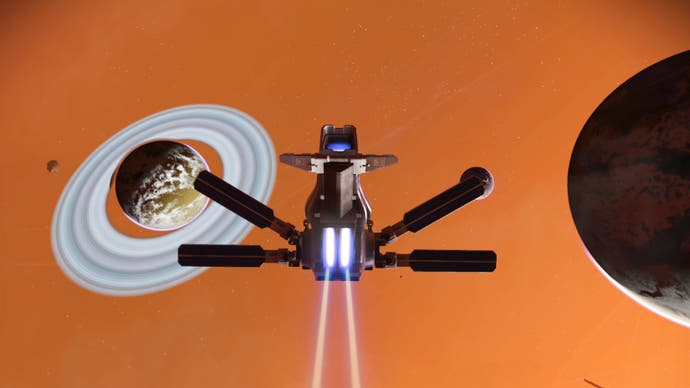The distractions in recent games make it hard not to fall behind
From No Man's Sky to Monster Hunter.
I know what it's like to be late to a game. That's perfectly normal, and even Eurogamer's video team is frequently Late to the Party. I have however developed a curious love-hate relationship with games that indulge my habit to dawdle.
My most recent example for this is No Man's Sky, currently enjoying a resurgence in popularity thanks to its NEXT multiplayer update. While everyone seems to be zooming from planet to planet, their journeys carefully documented on social media with breathtaking screenshots, I've been spending six hours on the same dustpile, collecting rocks, voluntarily.
Now, collecting said rocks is an important gameplay element of No Man's Sky, as you need resources to power your equipment and build bases, but the game gets me stuck in a vicious loop in which I fall victim to my own distracted nature. I walk around for a while, and before I know it I walk around some more because my hazard protection is going to run out of energy, and before I know it I've lost sight of both my ship and my sense of time.
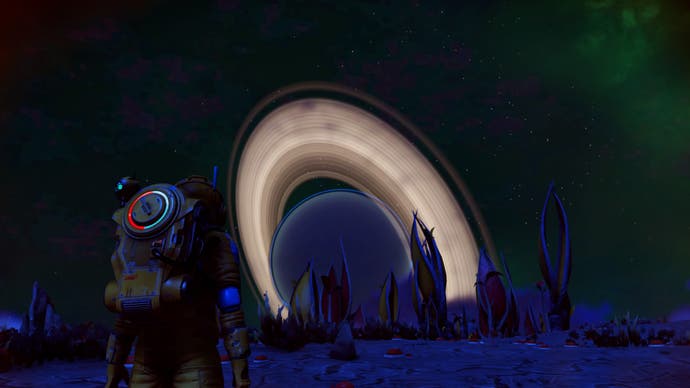
My experience with Pokémon Go is similar to this, in that I was just as late, enticed by new features, only to immediately be distracted by a feature that was meant to be a mere facet of the whole experience.
After playing the game for two years, my friends have exhausted all of their stories of trespassing in other people's back gardens. With everyone being so far ahead of me, taking over gyms seemed like a mammoth undertaking, like facing off against some sort of teenage town mafia, and so now I'm basically doing everything on the app but hunt Pokémon. I fell in love with the Pokéstops immediately, because they would without fail lead me to playgrounds, statues and graffiti that I had never seen, even after living in the same place for decades.
The game hasn't motivated me to leave the house more often, but to pay closer attention when I do, taking in the small details that can easily get lost. Now I use Pokémon Go as a sort of travel guide that's leading me to different points of interest. It's also great for finding restrooms.
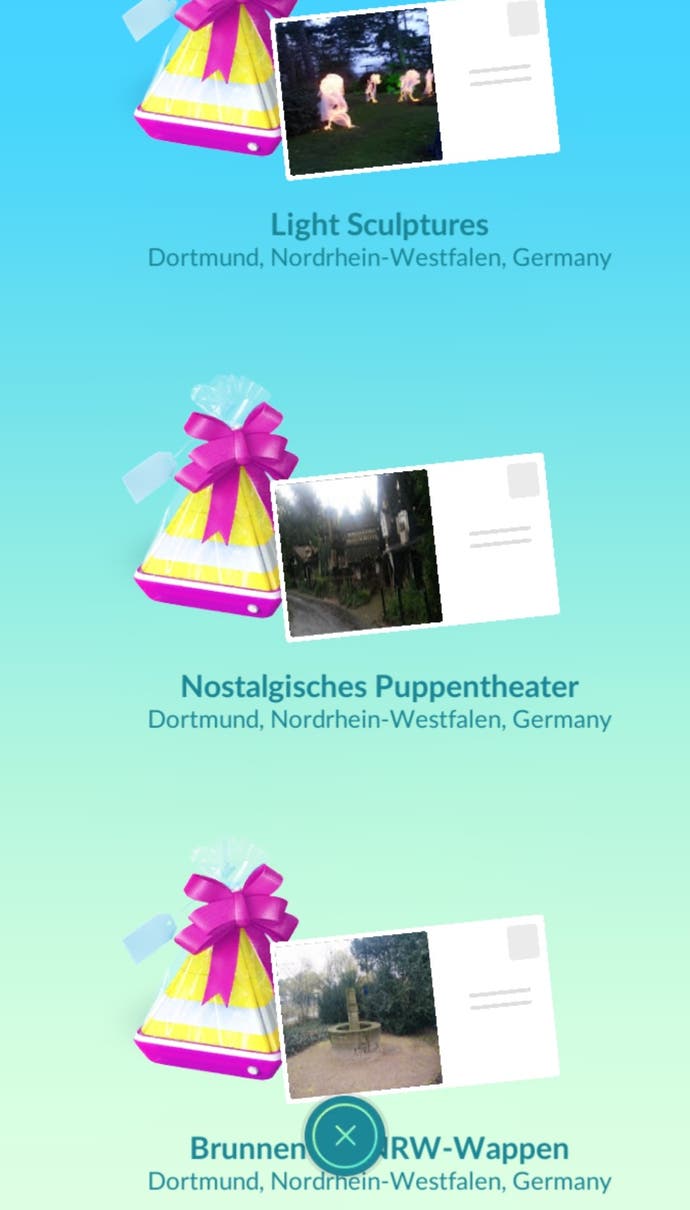
By all accounts, my experience with Monster Hunter: World should have gone differently. I bought it on release and was determined to familiarise myself with all of its systems and some of the different locations so I would be ready by the time my friends joined me, all of them the kind of people who, despite starting a game late, are very quick to catch up. I was determined to be a sociable online player, and not be the kind you would have to help out constantly.
All went well, until I got distracted again, doing nothing but walk around collecting honey and plants like Monster Hunter's version of Winnie the Pooh. With my uncanny ability to get lost even in games that have a mini-map, I can walk past the same tree several times and be continuously fascinated. In a game called Monster Hunter, you have to hunt and kill monsters to advance, but I had turned into a vegetarian who spent her days taking pictures of different birds and bugs.
None of these elements are ever superfluous to the overall gaming experience, far from it. They provide some much-needed balance to games that could otherwise quickly become monotonous. I don't mind the games-as-a-service model when it's not designed to drain my bank account or when, as with No Man's Sky, a developer works to fulfil the vision they initially had of a game.
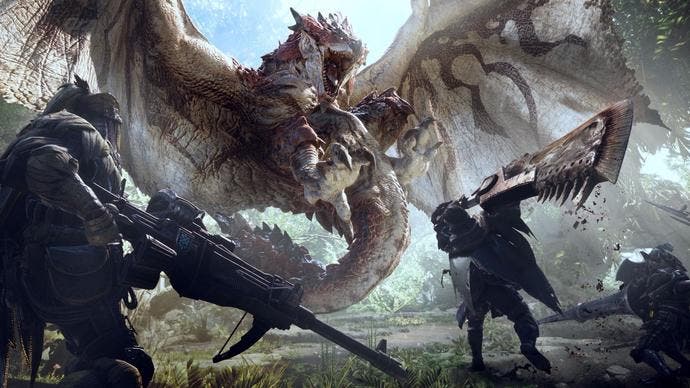
Game events like Monster Hunter: World's Final Fantasy crossover content give the developers the opportunity to utilise the huge worlds they built in different ways, and similarly provide players with new angles from which to look at a game. What they also require you to do however, is constantly stay on your feet. From sometimes-multiplayer games to fully cooperative online worlds like Sea of Thieves, travel is all the rage, you just shouldn't expect to arrive anywhere.
I'm not criticising a trend in gaming that serves a lot of people, from those who crave a social experience that feels more like couch co-op than an MMORPG, to those who don't have the money or time to constantly move on to other games. It's just not very latecomer-friendly and can distract you from the main purpose of the game, if you believe such a purpose exists.
A game that combines its narrative with an item collection mechanic surprisingly well is Beyond Good and Evil. Perhaps comparing it to the other games I've mentioned is slightly unfair, seeing as its open world is small and what you' re able to do is strongly anchored to the narrative, ensuring you never completely run loose, but it's a good showcase for making a small game mechanic fun to use without allowing players to completely run away with it.
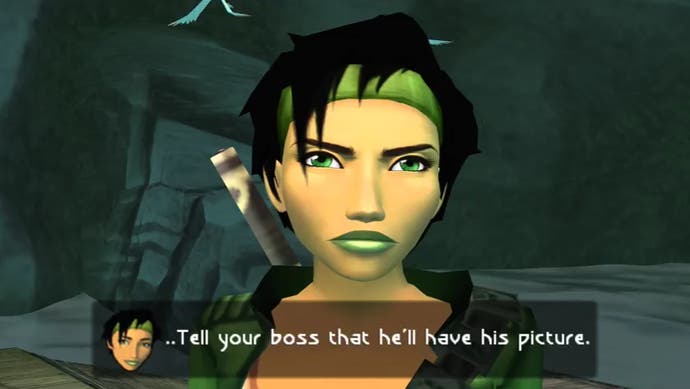
BG&E's protagonist Jade is an investigative journalist. As such, it makes sense for her to own a camera. Like any true freelancer, she picks up an odd job at the beginning of the game, taking pictures for a database of the local fauna, including the many different anthropomorphic creatures that populate the planet of Hyllis. Snapping pictures is simple and fun, but if I want to take more pictures of different species, I need to follow the story to different locales. That way I both progress and get to have fun with my in-gaming hobby. The satisfaction at being praised for taking a picture (and it doesn't even have to be a good picture) is similar to adding a new Pokémon to the Pokédex, and I get important rewards for each roll of film I complete.
Throughout the main story, the camera becomes your tool to collect evidence of a conspiracy. Like the minerals in No Man's Sky, it's more than a gimmick, as you need the money you make from your photos, but it also fulfils a narrative function. Additionally, you can't overdo it, as you don't gain anything from taking a picture more than once. Later, the camera can also be used to scan the environment. You learn a lot about the world this way without ever losing sight of your mission.
Sandboxes are great, but for me the best option is to restrict the sandbox from time to time to prevent overwhelming distraction. Ways to provide newbies in multiplayer spaces with a sense of achievement and keep them from comparing themselves with others are sorely needed, otherwise more timid players like me may stick to their own devices - or end up collecting ludicrous amounts of rocks.
